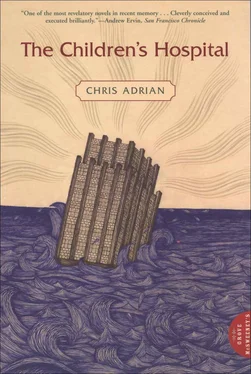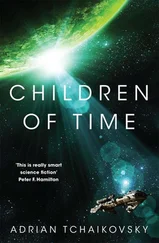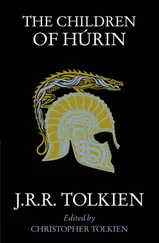I almost get you. You’re hand is reaching out to me and like always I miss it I just barely miss it.
Our last night so I thought it would be nice to have everybody together. I was thinking of everything we could do, things I don’t even have a name for yet. Matt and Gavin and almost everybody else, I found them and each said okay, see you later, but everyone was late and for a long time I thought it would be just me. Then Scott and Mrs. Scott arrived and then Matt and Gavin I thought it was all going to be ruined they were supposed to come in fifteen-minute intervals because I hadn’t told anybody the whole plan. I might have a friend there, too, I said, somebody cool, but I didn’t say who but it was all okay I shouldn’t have worried even though Matt and Gavin were frightened of the girl I could tell.
I named three new things: McKinley and Buchanan and Cleveland. The rooms aren’t very big, especially the singles. That was okay, too. It was like I was swimming through them, suspended in a Bush or a Bush Jr., or a Reagan and a Coolidge — I was floating I was flying I was on my way. Let this be a lesson to you, you told me, how everyone is connected by love. Look at these strangers they would not be together except for you they would all be alone if not for you you are a teacher like me. I am a teacher like you.
* * *
Dr. Chandra was touching himself, though there should not have been anything in the pages of the journal that really excited him in that way — it really was a tale of woe, after all. But it was something he did when he was upset, and the sadness of the story combined with the way it brought back memories of his own teenage adventures with men three and four times his age to make it seem like the necessary thing. Though he told himself over and over as he did it — I am not thinking of that, meaning he was not putting himself in the place of those creepy old men, the way he sometimes in his masturbating imagination put himself in the place of the creepy old men who had pounded his face or his bottom, and imagined his own face, and his own lips crying out under the weight of a fat hairy married man. Really he wasn’t thinking of anything for a while, but was only aware of the thing in him that was, stroke by stroke, coming closer to being launched out of his soul — a sadness and an unease and a frustration. Then he did see the boy, not naked or bottom up, not even the pleasant curve of his arm or the beautiful taper of hair at the back of his neck, but whole, neither clothed nor unclothed. He saw him in a way he could not properly describe, since it was a vision that seemed to include so much more than merely physical attributes. And suddenly the work he was doing — the very familiar work of temporarily ameliorating his own sad-sack situation — was not being done for him but for the boy, and with the same single-minded and vigorous force of imagination with which he might otherwise be imagining just how it might feel to be screwed by William Jennings Bryan or Conan the Barbarian or the handsome Yemeni who worked at the Falafel King down the street from his apartment, he now saw a different life for the boy, absent of desperate random screwings and ruinous teacherly vaginas, and loathing, and sadness. He imagined the boy, now not just clothed and unclothed but somehow bodied and unbodied, utterly at home in the world, and this was an ultimate pleasure. Even to consider it from the great distance pierced by his suddenly unbridled imagination was too much for Dr. Chandra. He blew with a wracking shudder and a great moan, and then lay back on his bed, totally exhausted, feeling somehow, despite appearances, that he had done something right for once.

People came to watch the boy sleep. Because he was in isolation no one was allowed to get very close to him — a sheet of glass and a plastic tent separated him from every spectator. They put him in a special room, and required everyone who took care of him to dress up in big puffy moon suits, complete with glass helmets and air hoses that snaked out of the back and looked like long pink tails. Not everyone read a belated lesson of quarantine in the abundant black ash on the boat, and though Jemma insisted the boy was somehow sick Dr. Snood pointed out that there was no spot on him and that no test they had done had revealed any illness in him. Still, most everyone agreed that it was better to err on the side of prudence until they knew exactly what they were dealing with. What that was, they still really had no idea. Dr. Pudding had dusted off his equipment and rebooted his computers to scan the boy’s whole body with every available modality, but the plain films and the CT and MRI and MRA scans revealed nothing except his bone age and that everyone was fascinated by him — he drew trailing crowds every time he was wheeled out of the PICU down to radiology, and bootleg copies of his scans multiplied almost as quickly as had the copies of his diary that appeared in the hands of thirteen-year-olds almost as fast as they could be confiscated. The diary entered the popular culture of the hospital; the boy’s life became the subject of heated speculation at Karen’s bar and a few brawls at Connie’s, and what started as speculative recreations of his last days became lurid horror and pornography— Goodbye, Mrs. DiMange; A Hand in the Mist; The Lido Zombie; A Reagan in the Sun.
Jemma stood with Rob and Ishmael in radiology while the boy got a last scan, a modified PET that was supposed not just to look for activity in his brain but to indicate how he was feeling. Dr. Pudding tried to explain it, but lost Jemma when he posited the existence of happy and sad glucose, each with its own signature that blazed forth, for anyone who could see it, when it was metabolized. “It isn’t happy or sad inherently,” he said, “but the brain makes it so, in spectacularly fine gradations.”
“He looks happy,” Ishmael pointed out, while the three of them watched through the window as the boy’s legs disappeared into the scanner. “Don’t you get a happy feeling, just looking at him? It’s like looking at a baby sleeping.”
“He makes me nervous,” Rob said.
“He makes me afraid,” said Jemma.
“Or a cat, asleep on a radiator,” said Ishmael.
“Just before it bursts into flame,” said Rob.
“I think I knew him,” Ishmael said again. “I feel like I’ve seen him, before. Maybe I did come from there, after all.”
“Maybe you’re Matt,” said Rob.
“That’s not even funny,” Ishmael said. He’d drafted the resolution condemning Matt and Gavin and the bathroom men and all the others who’d molested the boy or been molested by him — they’d spent hours trying to make a decision, and finally passed the useless resolution nearly unanimously. Jemma abstained, but wouldn’t veto it because that would have been an equally useless act, and because it seemed to matter so much to Ishmael, who never before had been so spirited in a Council discussion. “He’s my brother even if he isn’t my brother,” he said confidently. “Didn’t we both come from there?” He pointed at the wall, beyond which lay the nearest windows and the water.
“Here it is!” Dr. Pudding cried from behind his bank of monitors. They went and looked at the images — multi-colored snow in the shape of a brain. “He’s sad!” he said. “Look at all that mauve depression!”
That test, and all the others, while descriptive, were never profitable — they couldn’t tell what was wrong, and though they screened his blood and urine for every toxin and toxic metabolite they could think of, Dr. Sundae developing new assays with the assistance of the angel when the science of the old world did not suffice to answer a question, no test yielded more than did the evidence of their eyes: the boy was sleeping.
Читать дальше













